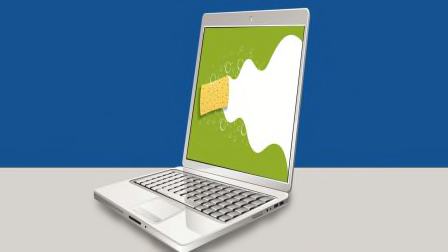Smarter: 9 Ways to Speed Up Google Chrome

I’m not a patient person, so a web browser that takes forever to load is one of my top pet peeves. This week I’m asking CR’s tech experts how to speed up Google Chrome if it’s running too slow. Also in this issue: What to use instead of fabric softener and how to cut streaming costs.
THE BIG STORY
Back in college, the browser I used exclusively was Internet Explorer. That is, until my senior year, when one of my friends looked over my shoulder and asked, “Why are you using IE? You should try Chrome.”
I’m not saying Google Chrome is the best browser out there, but since that day it’s the one I come back to the most. In the U.S., Chrome leads in overall internet browser market share at around 50 percent, and Apple’s Safari follows in second place at around 35 percent, according to StatCounter, a company that provides software to monitor web traffic. And when we asked our social media users which browser was their go-to choice in a poll, most people voted for Chrome.
While I find Chrome to be useful, it can take up a lot of memory, especially if you have many tabs open. If your Chrome has been lagging, like mine has been for the past few weeks, here are steps you can take to speed it up.
THE GOOD STUFF
Can you put a skillet in a dishwasher?
Read here for things you can put in the dishwasher.
TIP OF THE WEEK

Graphic: Consumer Reports, Getty Images Graphic: Consumer Reports, Getty Images
Is there a streaming service you’re least likely to unsubscribe from? When we asked Facebook users this question, Amazon Prime Video was the most commonly named service, with many users saying they’d keep it because they enjoy the benefits of their Amazon Prime membership.
Netflix was brought up the second most often. Some enjoy it for the variety of content and some say they keep it because they’ve had it for such a long time. “I’ve been subscribing to Netflix since the beginning,” one user said. “It’s part of me,” another said.
Too many subscription services, however, can really add up in terms of monthly expenses. Fifty percent of American households have four or more streaming subscriptions, according to the market research firm Parks Associates. So if you are looking to cut down on your TV-watching costs, here are a few things to try (you can read the full list here):
1. Keep track of all your subscriptions.
One way is by moving all of them to one credit card.
2. Choose a cheaper tier.
Many companies are now offering less expensive ad-supported options that can save you a few dollars every month. And there are also dozens of completely free ad-supported services, such as Pluto TV and Tubi.
3. Take advantage of free promotions.
Look out for deals offered by your cell phone carrier. You can, for instance, get HBO Max free with several unlimited plans from AT&T, or Netflix with most Magenta plans offered by T-Mobile.
Bonus reading: How to replace cable TV for $25 a month.
MUST-READS OF THE WEEK
🏠 How to Organize the Cabinet Under a Sink
I don’t know about you, but mine is an absolute mess.
👃 Is Deodorant Ever Safe to Wear . . . Down There?
“Vaginas are supposed to smell like vaginas. It’s not going to smell like a piña colada, nor should it.”
⛽ How to Check Your Car’s Engine Oil
This 1-minute task will help you get the most miles out of your engine.
ASK AN EXPERT
Rich Handel, CR’s laundry expert and detergent tester, is against using fabric softener because it irritates sensitive skin and can leave a residue on your clothes and the washing machine.
Our social media followers asked him what he thought about using these two alternatives to fabric softener: dryer sheets and white vinegar. Here’s what Rich said.
On dryer sheets:
If you want to get rid of the static in your clothes, you can use dryer sheets occasionally. However, you shouldn’t use them too often because, over time, they will leave a residue on your dryer’s moisture sensor, which will affect its effectiveness.
On white vinegar:
There has been a lot of controversy over this one. It’s a very popular alternative to commercial softeners, and many users stand by it. We err on the side of caution and recommend against it because vinegar might damage the rubber hoses and seals in your washing machine and cause leaks, with front-load washing machines being particularly vulnerable.
QUICK FACTS
Today I learned that not using shampoo can be better for your hair.

"Stop keeping tabs."
















